第26章 CRITICISMS ON THE PRINCIPAL ITALIAN WRITERS(9)
This is the more extraordinary, since Dante seems to have been utterly ignorant of the Greek language; and his favourite Latin models could only have served to mislead him. Indeed, it is impossible not to remark hisadmiration of writers far inferior to himself; and, in particular, his idolatry of Virgil, who, elegant and splendid as he is, has no pretensions to the depth and originality of mind which characterise his Tuscan worshipper, In truth it may be laid down as an almost universal rule that good poets are bad critics. Their minds are under the tyranny of ten thousand associations imperceptible to others. The worst writer may easily happen to touch a spring which is connected in their minds with a long succession of beautiful images. They are like the gigantic slaves of Aladdin, gifted with matchless power, but bound by spells so mighty that when a child whom they could have crushed touched a talisman, of whose secret he was ignorant, they immediately became his vassals. It has more than once happened to me to see minds, graceful and majestic as the Titania of Shakspeare, bewitched by the charms of an ass's head, bestowing on it the fondest caresses, and crowning it with the sweetest flowers. I need only mention the poems attributed to Ossian. They are utterly worthless, except as an edifying instance of the success of a story without evidence, and of a book without merit. They are a chaos of words which present no image, of images which have no archetype:--they are without form and void; and darkness is upon the face of them. Yet how many men of genius have panegyrised and imitated them!
The style of Dante is, if not his highest, perhaps his most peculiar excellence. I know nothing with which it can be compared. The noblest models of Greek composition must yield to it. His words are the fewest and the best which it is possible to use. The first expression in which he clothes his thoughts is always so energetic and comprehensive that amplification would only injure the effect. There is probably no writer in any language who has presented so many strong pictures to the mind. Yet there is probably no writer equally concise. This perfection of style is the principal merit of the Paradiso, which, as I have already remarked, is by no means equal in other respects to the two preceding parts of the poem. The force and felicity of the diction, however, irresistibly attract the reader through the theological lectures and the sketches of ecclesiastical biography, with which this division of the work too much abounds. It may seem almost absurd to quote particularspecimens of an excellence which is diffused over all his hundred cantos. I will, however, instance the third canto of the Inferno, and the sixth of the Purgatorio, as passages incomparable in their kind. The merit of the latter is, perhaps, rather oratorical than poetical; nor can I recollect anything in the great Athenian speeches which equals it in force of invective and bitterness of sarcasm. I have heard the most eloquent statesman of the age remark that, next to Demosthenes, Dante is the writer who ought to be most attentively studied by every man who desires to attain oratorical eminence.
But it is time to close this feeble and rambling critique. I cannot refrain, however, from saying a few words upon the translations of the Divine Comedy. Boyd's is as tedious and languid as the original is rapid and forcible. The strange measure which he has chosen, and, for aught I know, invented, is most unfit for such a work. Translations ought never to be written in a verse which requires much command of rhyme. The stanza becomes a bed of Procrustes; and the thoughts of the unfortunate author are alternately racked and curtailed to fit their new receptacle. The abrupt and yet consecutive style of Dante suffers more than that of any other poet by a version diffuse in style, and divided into paragraphs, for they deserve no other name, of equal length.
Nothing can be said in favour of Hayley's attempt, but that it is better than Boyd's. His mind was a tolerable specimen of filigree work,--rather elegant, and very feeble. All that can be said for his best works is that they are neat. All that can be said against his worst is that they are stupid. He might have translated Metastasio tolerably. But he was utterly unable to do justice to the"rime e aspre e chiocce, "Come si converrebbe al tristo buco." (Inferno, canto xxxii.)I turn with pleasure from these wretched performances to Mr Cary's translation. It is a work which well deserves a separate discussion, and on which, if this article were not already too long, I could dwell with great pleasure. At present I will only say that there is no other version in the world, as far as I know, so faithful, yet that there is no other version which so fully proves that the translator is himself a man of poetical genius.
Those who are ignorant of the Italian language should read it to become acquainted with the Divine Comedy. Those who are most intimate with Italian literature should read it for its original merits: and I believe that they will find it difficult to determine whether the author deserves most praise for his intimacy with the language of Dante, or for his extraordinary mastery over his own.
...